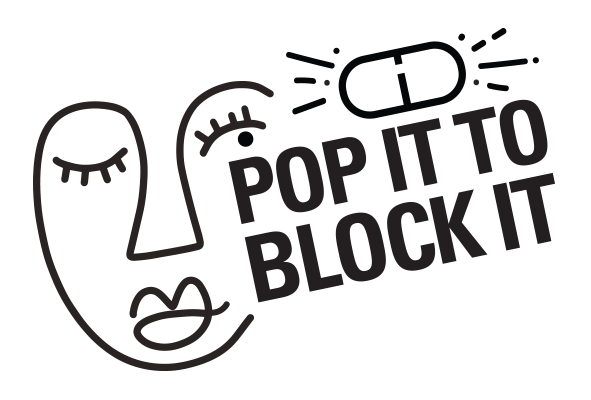Talking to your doctor about PrEP

You can only get PrEP medicines with a prescription. That means you’ll have to your Primary Care Provider (PCP). PrEP is pretty new, so there’s a chance your PCP may not be familiar with it or comfortable prescribing it.
Don’t worry — this guide will help you PrEPare for your first office visit, and getting PrEPared is super easy. The only thing you’ll need is a notebook.
Let’s get ready to get PrEPared.
PrEP is short for “Pre-Exposure Prophylaxis.” It sounds complicated, but it’s not. Let’s break it down — “pre-exposure” means you take it before you’re in contact with HIV, and a “prophylaxis” prevents something from happening. So, if you’re living with HIV, PrEP isn’t for you. But, it’s a great option for HIV-negative sexual partners.
PrEP is a lot like birth control. Birth control helps prevent pregnancy in people. And, just like birth control only prevents pregnancy, PrEP only prevents one thing: HIV. You still need to practice safer sex to avoid other STIs like syphilis or gonorrhea. PrEP also doesn’t prevent pregnancy.
PrEP is a combination of two medicines that you take as a single pill. There are two names for it, right now: Truvada and Descovy.
1. PrEPare your history.
When you ask your PCP about getting on PrEP, they’re going to ask you about your health history. They’ll ask you questions like:
- What medications do you take?
- Do you have unprotected sex?
- Are you pregnant?
- Do you take injected drugs?
You’ve got to be honest when you’re talking with your PCP about everything. Everything includes the sex stuff. So, be PrEPared for this. Get out that notebook and write down the answers to these questions.

2. PrEPare for the discussion.
You’re going to your PCP to get on PrEP. It’s a big conversation and, besides your health history, there’s a lot to remember. In your notebook, write this stuff down to remind you during the appointment.
First, remember to tell your PCP that you’d like to get on PrEP.
Most PCPs can prescribe PrEP, but if they can’t prescribe it, ask for a referral to someone who can.
This is really important: tell your PCP right away about your pregnancy, if you’re pregnant.
Ask these questions:
- What are the side effects? (These are rare. If side-effects do happen, they are usually mild.)
- What tests are there to get on PrEP?
- How do I take the drug?
- How often do I need to get tested?
- Are there follow-up appointments?
If you have other questions, write them down too. When it comes to your health, make sure to get your questions answered. So, don’t leave the appointment until you feel comfortable that your PCP has answered your questions.

3. PrEPare financially.
Truvada and Descovy can be pretty expensive. The sticker price for either med is about $2,000 per month. Nobody’s got an extra two grand lying around. Luckily, there’s help out there. By “help,” we mean money.
Take note of your insurance coverage. You may have private, public, or no insurance. The kind of insurance you have plays a significant role in how you’ll pay for PrEP.
For people with private insurance who have high deductibles or co-pays, Gilead has a co-pay assistance program. It’s basically a monthly coupon that helps cover the cost of PrEP — up to $600 per month. The best part is, there are no income restrictions or guidelines. If you’ve got private health insurance, you’re probably eligible for this program.
If you’re on public insurance, like Medicaid or Medicare, there are different options. We’ve got the tea on this over here.
Finally, if you’re uninsured, you’re not out of luck. Gilead has a patient assistance program to help uninsured, low-income folks pay for PrEP.
Get PrEP for FREE (or really cheap)
4. You’re PrEPared, now what?
Make an appointment with your PCP and try to get there fifteen minutes early.
Once you’re on PrEP, make sure to take it as directed and keep tabs on your follow-up care. You’ll need to get lab work done every 3-6 months and have follow-up appointments with your PCP.
Also, remember to keep using safer-sex practices. You’re protected from HIV when you’re on PrEP, but not from other STIs like syphilis, gonorrhea, and genital warts.
5. Need help getting PrEPared?
Getting on PrEP is a big deal. If you’ve got questions, don’t worry, there’s some great help available. In Cleveland, we’ve got two amazing people whose jobs are to help you get on and stay on PrEP. They’re called PrEP Navigators. Here’s how you can get in touch with them:
Ask for help connecting to a doctor for PrEP.
Fiona Allan, University Hospitals
Call 216.286.7737
AKeem Rollins, MetroHealth
Call or Text 216.714.2223

Email AKeem at Metro for PrEP




